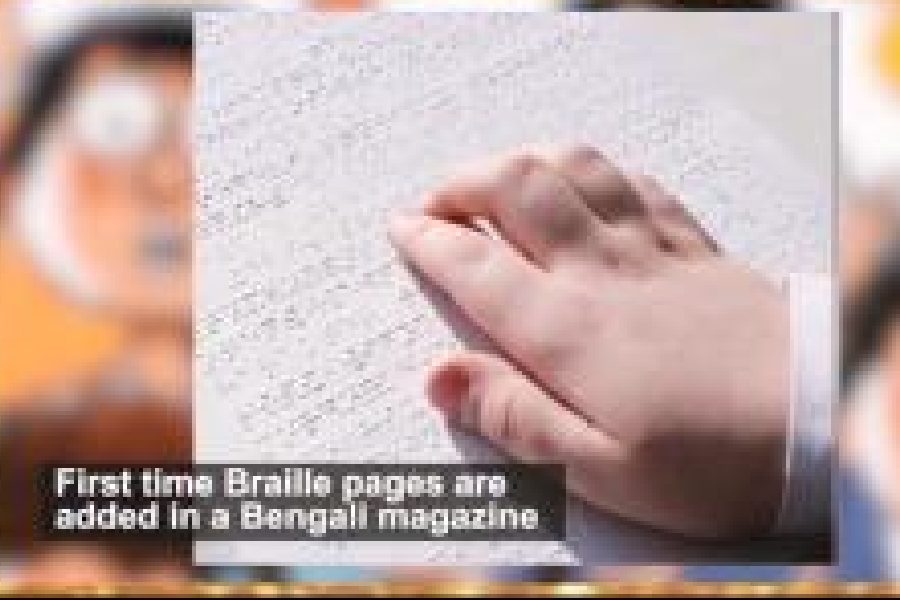The Bengali quarterly magazine of the state commission for protection of child rights introduced pages in Braille in its September issue.
The four pages of Braille contain poems in Bengali introduced with the objective of making the magazine inclusive.
“The commission has been moving towards becoming more and more inclusive. Hullor is a magazine that children enjoy. We felt why should those with visual disabilities be excluded,” said Ananya Chatterjee Chakraborti, editor, Hullor and advisor of the West Bengal Commission for Protection of Child Rights (WBCPCR).
In its effort to be more inclusive, the commission in 2022 made a transgender person the chairperson for a day, moving beyond the boundaries of gender. This year, a special needs student was the chairperson for a day and four others with special needs were her team members. The team included a person with visual disabilities.
The students had placed demands as basic as ramps in schools and offices, accessibility to public transport, staff who would understand sign language in hospitals and protection from sexual abuse and child labour.
“It is when we interact with them that we understand their perspective and needs. We have started with poems. Gradually, we include other items, too,” said Mahuya Santra, executive editor, Hullor.
Hullor is primarily a children’s magazine with poems, stories, illustrations, and drawings.
The September issue was a special 134 Puja publication released by Shashi Panja, minister of women and child development and social welfare.
Such initiatives go a long way in mainstreaming individuals with special abilities, said Sudeshna Roy, chairperson of WBCPCR.
